About Course
Implementing systematic ESG data management is essential for boards and executive management to ensure regulatory compliance, mitigate risks, gain competitive advantages, and drive long-term value creation while enhancing stakeholder engagement and informing sustainability strategies.
Outline
- ESG (Environmental, Social, and Governance) - significance in today's business landscape & its key components.
- Types of ESG Data & Relevant Data sources
- Importance of Data Quality and Reliability and related best practices
- Approach to key Data Collection and Integration
- Data Analysis and the Reporting requirements
- Data Governance and Security
Faculty

Hussein Hassanali, a distinguished British Pakistani professional, brings over 28 years of extensive global experience in Assurance, Risk, and Information Security. Having served as Head Technology Audit at HBL Internal Audit, his background includes pivotal roles such as CISO at Bank AL Habib Limited and Internal Audit Manager at the Aga Khan University.
Recognized for his contributions to Information Security, he holds a variety of certifications and is actively involved in several industry associations. Some of his certifications include CISM, CRISC, CISA, and CDPSE. He is associated with ISACA Karachi Chapter as President, FPCCI's Standing Committee on Cyber Crimes & Security, and has been involved with various other organizations such as Ernst & Young, UK, and the Aga Khan University.
Partner - StrataG

About Course
Practical training on IFRS S1 & S2 for sustainability and climate-related reporting in Pakistan.
Outline
- Introduction to IFRS S1 and S2 and Pakistan’s regulatory transition
- Core sustainability disclosures, materiality, and SASB metrics
- Climate risks, GHG emissions, and scenario analysis under IFRS S2
- Integrating sustainability and climate disclosures with financial reporting
Faculty

Ms. Fauzia Safdar Khan is a fellow member of the Institute of Chartered Accountants of Pakistan (ICAP) and an associate of the Institute of Chartered Accountants in England and Wales (ICAEW). She holds an MBA in sustainability from the University of Leicester. Currently, Ms. Khan is serving as the Director of Sustainability and Climate at Crowe Pakistan (Crowe Hussain Chaudhury & Co.) She has been instrumental in spearheading a diverse range of projects across various industries. Her primary area of expertise revolves around sustainability reporting, strategic planning and development, greenhouse gas (GHG) emissions, carbon offsetting strategies, SBTi target-setting processes, policy formulation, and creating comprehensive environmental, social and governance ESG strategies aligned with organizational objectives. She is adept at managing the entire process - from commitment to disclosure - with utmost diligence and professionalism.
Partner - Crowe Pakistan

About Course
Practical training on IFRS S1 for sustainability and climate-related reporting in Pakistan.
Outline
- Introduction to IFRS S1 and Pakistan’s regulatory transition
- Core sustainability disclosures, materiality, and SASB metrics
- Climate risks, GHG emissions, and scenario analysis under IFRS S1
- Integrating sustainability and climate disclosures with financial reporting
Faculty

Ms. Fauzia Safdar Khan is a fellow member of the Institute of Chartered Accountants of Pakistan (ICAP) and an associate of the Institute of Chartered Accountants in England and Wales (ICAEW). She holds an MBA in sustainability from the University of Leicester. Currently, Ms. Khan is serving as the Director of Sustainability and Climate at Crowe Pakistan (Crowe Hussain Chaudhury & Co.) She has been instrumental in spearheading a diverse range of projects across various industries. Her primary area of expertise revolves around sustainability reporting, strategic planning and development, greenhouse gas (GHG) emissions, carbon offsetting strategies, SBTi target-setting processes, policy formulation, and creating comprehensive environmental, social and governance ESG strategies aligned with organizational objectives. She is adept at managing the entire process - from commitment to disclosure - with utmost diligence and professionalism.
Partner - Crowe Pakistan

About Course
Scenario analysis for resilient strategies
Outline
- What is Scenario Analysis
- Understanding of Scenarios
- Constructing Scenarios
- Identifying and Defining Range of Scenarios
- Assessing environment and evaluating business impacts
Faculty

Ms. Fauzia Safdar Khan is a fellow member of the Institute of Chartered Accountants of Pakistan (ICAP) and an associate of the Institute of Chartered Accountants in England and Wales (ICAEW). She holds an MBA in sustainability from the University of Leicester. Currently, Ms. Khan is serving as the Director of Sustainability and Climate at Crowe Pakistan (Crowe Hussain Chaudhury & Co.) She has been instrumental in spearheading a diverse range of projects across various industries. Her primary area of expertise revolves around sustainability reporting, strategic planning and development, greenhouse gas (GHG) emissions, carbon offsetting strategies, SBTi target-setting processes, policy formulation, and creating comprehensive environmental, social and governance ESG strategies aligned with organizational objectives. She is adept at managing the entire process - from commitment to disclosure - with utmost diligence and professionalism.
Partner - Crowe Pakistan

About Course
Participants will be introduced to the concept of carbon offsets and carbon trading. They will learn about different types of carbon offsets and how they can be used to decarbonize a company's last mile emissions and meet net-zero targets through select case studies.
Outline
- What is a carbon offset?
- Difference between carbon credits and carbon offsets
- Introduction to carbon markets (voluntary and compliance markets)
- The roles of key participants in voluntary carbon markets and how they interact with one another
- Delta Blue Carbon case study example
Faculty
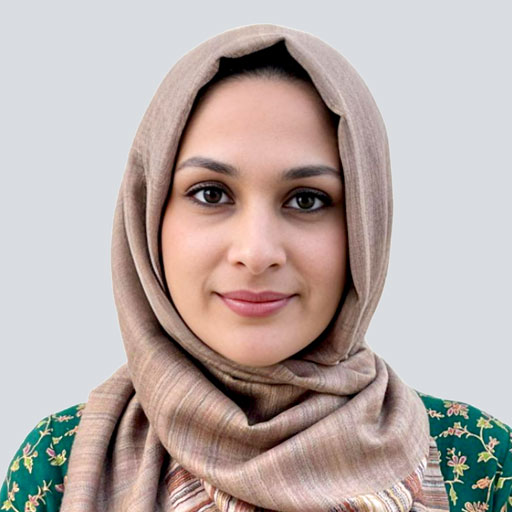
Maha Qasim is the CEO of Zero-Point Partners, an advisory & consulting firm focused on enabling the transition to a sustainable economy. With over 16 years of experience in environmental management, ESG strategy & disclosure and climate finance, Maha specializes in sustainability strategy advisory, capacity-building and program implementation. She has advised on sustainability initiatives for banking & financial institutions, fertilizer, steel, power generation, textile and FMCG companies.
Previously, Maha served as Country Advisor, Pakistan, to the world’s largest philanthropic foundation – working with program teams to develop a coordinated donor-government strategy, and cultivating partnerships to advance strategic goals.
She serves on the Board of the Global Youth Leadership Center (GYLC) – an international nonprofit that aims to expand youth’s knowledge about climate science, build their leadership skills, and engage them with climate action. She is a founding member of the Leadership Council of the United Nations Sustainable Development Solutions Network – Pakistan.
Maha has a Master’s in Environmental Management from the Yale School of Environment and a BSE in Civil and Environmental Engineering from Princeton University.
Partner - Zero Point
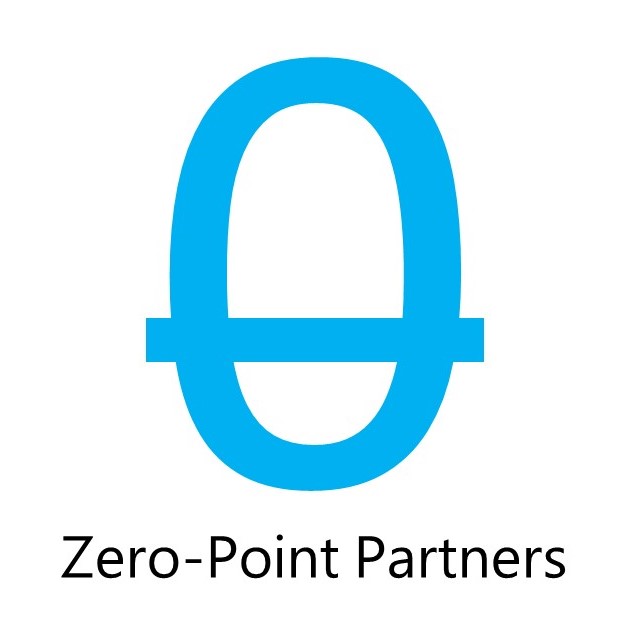
About Course
‘Discover how financial institutions can drive climate action and foster sustainable economic growth’.
Outline
Why FI executives should attend this course ?
- Understand the sector context
- Learn about new products and services scope
- Obtain best practices knowledge
- Understand your functional responsibilities
Faculty
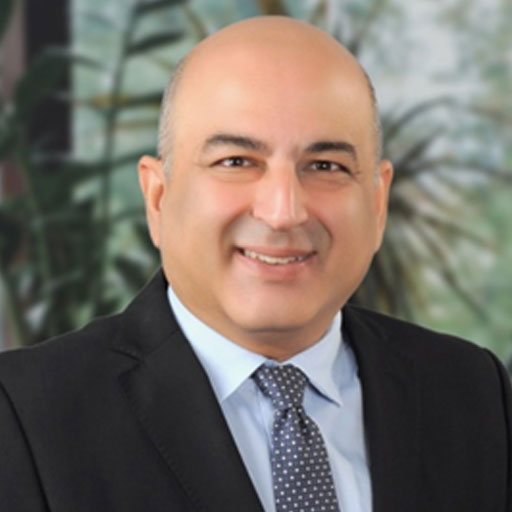
Memosh Khawaja is the President and CEO of Pakistan Institute of Corporate Governance.
He has more than 14 years of international corporate business leadership experience, as a global business steering director based out of Germany and as Managing Director Middle East for Henkel KGaA, and as CEO for Haleeb Foods in Pakistan. He started his professional career with Unilever in Pakistan.
Memosh has a board designation on Climate Change (CCB.D) and ESG (GCB.D) and has also advised on strategy and sustainability for the corporate sector. He also serves as a non-executive independent director on local and international boards.
Memosh is an MBA from Lahore University of Management Sciences (LUMS) and has obtained executive leadership training in strategy and innovation from the MIT Sloan school of Management.
About Course
Master the essentials of ethics, from understanding and documenting organizational standards to navigating board-level challenges and constructing robust ethical decision-making frameworks.
Outline
- Understanding ethics
- Appreciating the role of the board in formulating the organisation’s values and ethical standards
- Identifying the different realms of ethical challenges that directors face
- Documentation of an organisation’s ethical standards
- Comprehending and being able to construct the ethical decision-making framework
Faculty
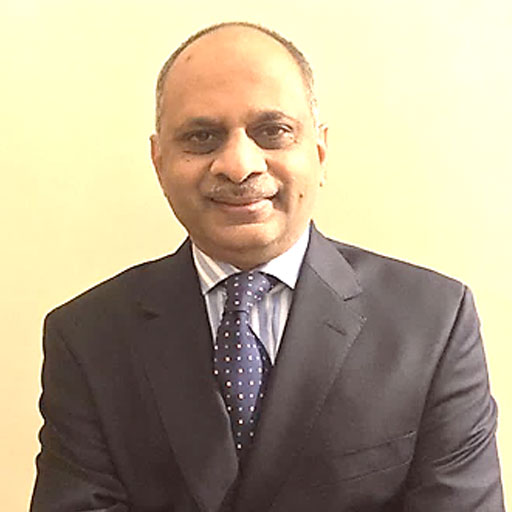
Faisal Anwar is a senior management consultant and trainer with diverse experience spanning over 30 years with top-notch multinational banks, i.e., RBS, ABN AMRO, Bank of America, and HBL as well as a multilateral development bank, ECO Trade & Development Bank, at its headquarters in Istanbul, Turkey. He has held top management positions such as: Executive Director & COO-Pakistan at ABN AMRO/RBS with oversight responsibility for shared services, i.e., Operations, Admin, IT, Legal & Compliance, HR, ORM, and Finance; and Chief Compliance Officer & Head of Global Compliance Group at HBL.
Faisal holds a B. Com (Gold Medalist) Degree from University of the Punjab, Pakistan; BBA (with distinction) from University of Oklahoma, USA; and MBA from University of Texas, USA. He is a Certified Director under the Code of Corporate Governance of SECP; attended Quest-Masterclass Course on “Corporate Governance & Director Duties Excellence”, at Singapore; and holds the CCEP-I qualification from SCCE USA.
About Course
Scenario analysis for resilient strategies
Outline
- What is Scenario Analysis
- Understanding of Scenarios
- Constructing Scenarios
- Identifying and Defining Range of Scenarios
- Assessing environment and evaluating business impacts
Faculty

Ms. Fauzia Safdar Khan is a fellow member of the Institute of Chartered Accountants of Pakistan (ICAP) and an associate of the Institute of Chartered Accountants in England and Wales (ICAEW). She holds an MBA in sustainability from the University of Leicester. Currently, Ms. Khan is serving as the Director of Sustainability and Climate at Crowe Pakistan (Crowe Hussain Chaudhury & Co.) She has been instrumental in spearheading a diverse range of projects across various industries. Her primary area of expertise revolves around sustainability reporting, strategic planning and development, greenhouse gas (GHG) emissions, carbon offsetting strategies, SBTi target-setting processes, policy formulation, and creating comprehensive environmental, social and governance ESG strategies aligned with organizational objectives. She is adept at managing the entire process - from commitment to disclosure - with utmost diligence and professionalism.
Partner - Crowe Pakistan

About Course
Participants will be introduced to the concept of carbon offsets and carbon trading. They will learn about different types of carbon offsets and how they can be used to decarbonize a company's last mile emissions and meet net-zero targets through select case studies.
Outline
- What is a carbon offset?
- Difference between carbon credits and carbon offsets
- Introduction to carbon markets (voluntary and compliance markets)
- The roles of key participants in voluntary carbon markets and how they interact with one another
- Delta Blue Carbon case study example
Faculty

Maha Qasim is the CEO of Zero-Point Partners, an advisory & consulting firm focused on enabling the transition to a sustainable economy. With over 16 years of experience in environmental management, ESG strategy & disclosure and climate finance, Maha specializes in sustainability strategy advisory, capacity-building and program implementation. She has advised on sustainability initiatives for banking & financial institutions, fertilizer, steel, power generation, textile and FMCG companies.
Previously, Maha served as Country Advisor, Pakistan, to the world’s largest philanthropic foundation – working with program teams to develop a coordinated donor-government strategy, and cultivating partnerships to advance strategic goals.
She serves on the Board of the Global Youth Leadership Center (GYLC) – an international nonprofit that aims to expand youth’s knowledge about climate science, build their leadership skills, and engage them with climate action. She is a founding member of the Leadership Council of the United Nations Sustainable Development Solutions Network – Pakistan.
Maha has a Master’s in Environmental Management from the Yale School of Environment and a BSE in Civil and Environmental Engineering from Princeton University.
Partner - Zero Point

About Course
Implementing systematic ESG data management is essential for boards and executive management to ensure regulatory compliance, mitigate risks, gain competitive advantages, and drive long-term value creation while enhancing stakeholder engagement and informing sustainability strategies.
Outline
- ESG (Environmental, Social, and Governance) - significance in today's business landscape & its key components.
- Types of ESG Data & Relevant Data sources
- Importance of Data Quality and Reliability and related best practices
- Approach to key Data Collection and Integration
- Data Analysis and the Reporting requirements
- Data Governance and Security
Faculty
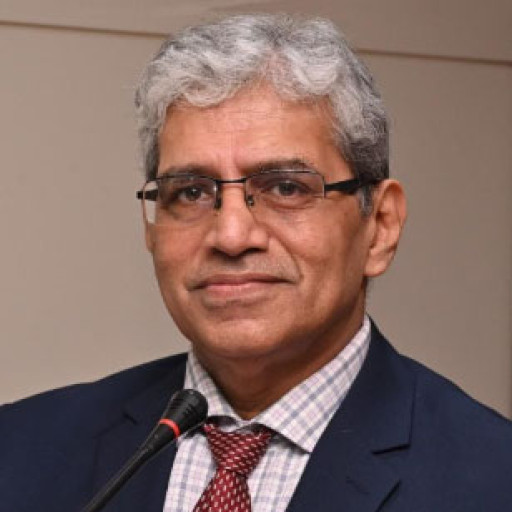
Hussein Hassanali, a distinguished British Pakistani professional, brings over 28 years of extensive global experience in Assurance, Risk, and Information Security. Having served as Head Technology Audit at HBL Internal Audit, his background includes pivotal roles such as CISO at Bank AL Habib Limited and Internal Audit Manager at the Aga Khan University.
Recognized for his contributions to Information Security, he holds a variety of certifications and is actively involved in several industry associations. Some of his certifications include CISM, CRISC, CISA, and CDPSE. He is associated with ISACA Karachi Chapter as President, FPCCI's Standing Committee on Cyber Crimes & Security, and has been involved with various other organizations such as Ernst & Young, UK, and the Aga Khan University.
Partner - StrataG

